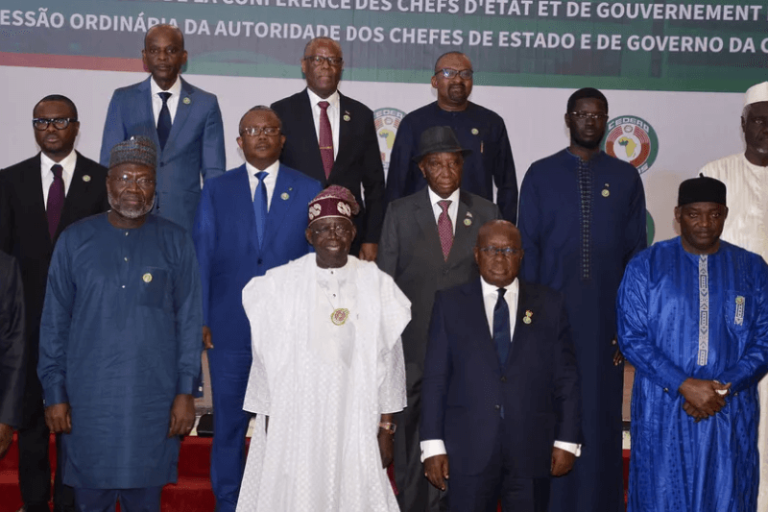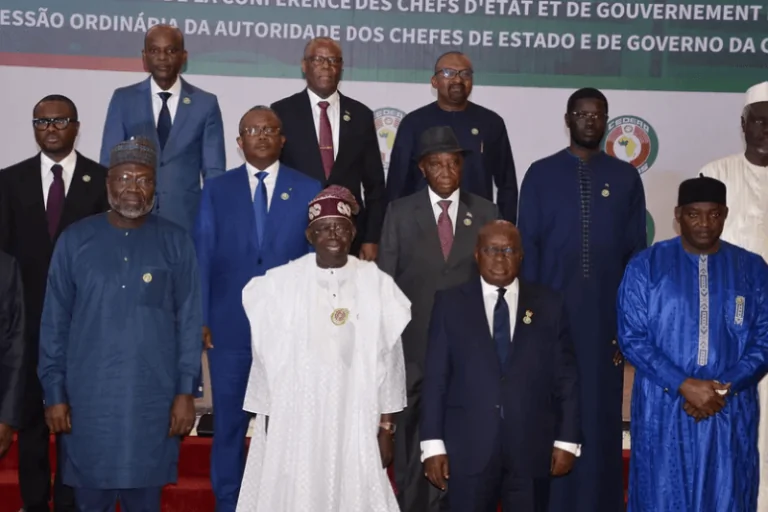

ECOWAS Commission President Omar Touray has announced that the transition period will run from 29 January 2025 to 29 July 2025, while leaving the door open to the three countries during this period.
Speaking at the opening of the summit, Mr Touray said the decision was ‘discouraging’.
Burkina Faso, Mali and Niger declared their intention to withdraw from ECOWAS in January, citing the organisation’s sanctions and inability to resolve their security problems.
Membership of ECOWAS offers considerable benefits, such as visa-free travel between member states, and it is not yet clear how these benefits will be affected by the three countries’ exit from the organisation.
The military governments of Niger, Mali and Burkina Faso have firmly rejected attempts by ECOWAS to persuade them to reconsider leaving, and are considering issuing their own travel documents and forming a separate alliance.
The one-year notice period for their exit is expected to end as planned.
Mr Touray praised the dedication of the EU envoys in their efforts to resolve the current crisis.
Bola Tinubu, President of Nigeria and Chairman of ECOWAS, stressed that global and regional challenges are testing their spirit of collaboration.
One of the main benefits of membership of ECOWAS is the ability to travel freely between member states, and it is not yet clear how this will be affected by the departure of three countries from the Union.
Asked about the potential consequences in July, the President of the ECOWAS Commission said: ‘Leaving an agreement… in particular an agreement concerning free trade and the movement of people, entails the risk of losing these advantages’.
On Saturday, the three countries issued a joint statement saying that their territories would continue to be accessible without visas to other West African citizens.
Since its creation in 1975, ECOWAS has been the main political authority in West Africa, and this division represents its greatest challenge to date, according to Babacar Ndiaye, a researcher at the Timbuktu Institute for Peace Studies in Senegal.
The likelihood of ECOWAS succeeding in reintegrating the three countries is low, mainly because the bloc is seeking a rapid return to democratic governance, which the military juntas have not committed themselves to, explained Mucahid Durmaz, senior analyst at Verisk Maplecroft, a global risk management consultancy.
The U.S.-based driver training company Zutobi analyzed road safety worldwide and found South Africa stays last in driving danger since…
The Basketball Africa League (BAL) returns for its 2025 season with exciting changes and developments. Since 2019 the NBA-linked basketball…
The Somali president supports their military forces to eliminate the threats from Al-Shabaab, ISIS, and Al-Qaeda. The Somali National Army…
UAE President Sheikh Mohamed bin Zayed Al Nahyan held talks with President Faustin Archange Touadéra of the Central African Republic…
African football teams struggle intensely in the World Cup Qualification rounds to earn their place on the international football stage.…
The journey toward the 2026 FIFA World Cup is rapidly intensifying for all African teams, who now hold a historical…
This website uses cookies.